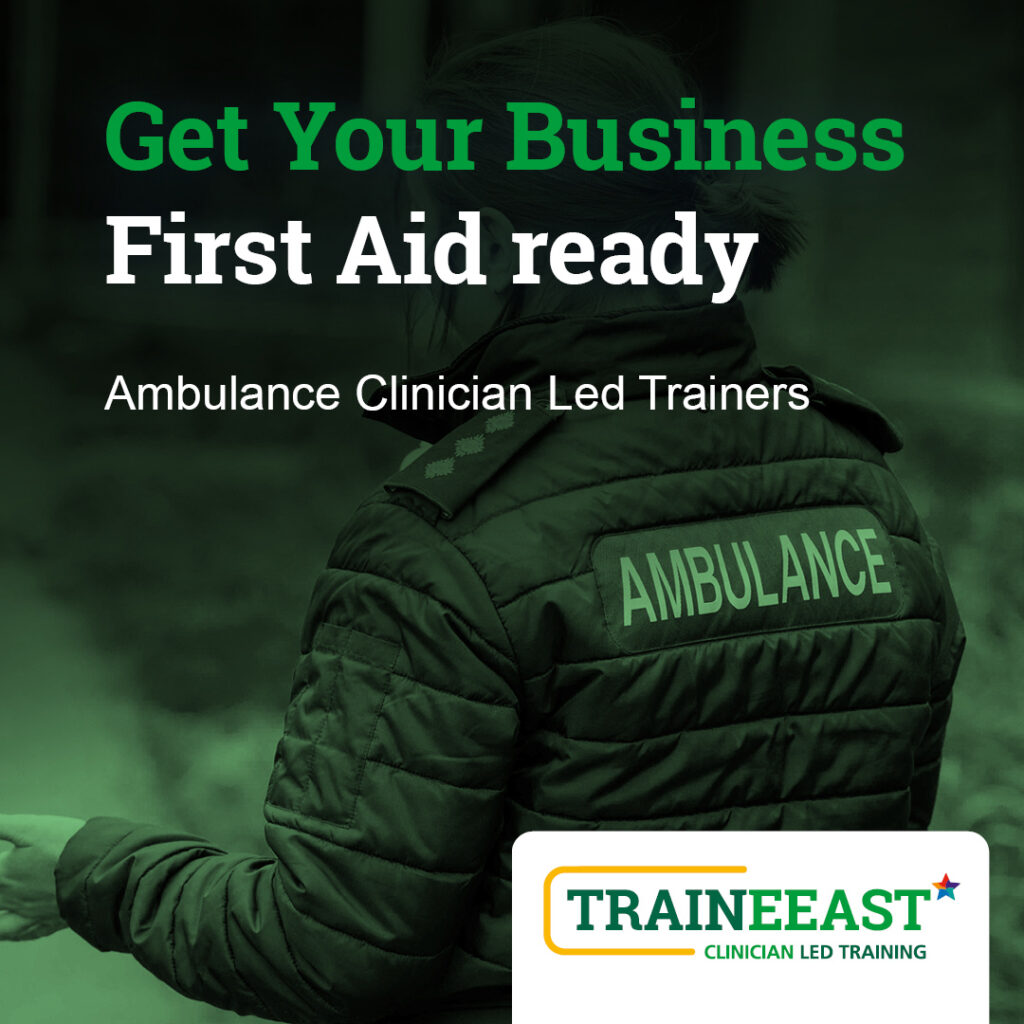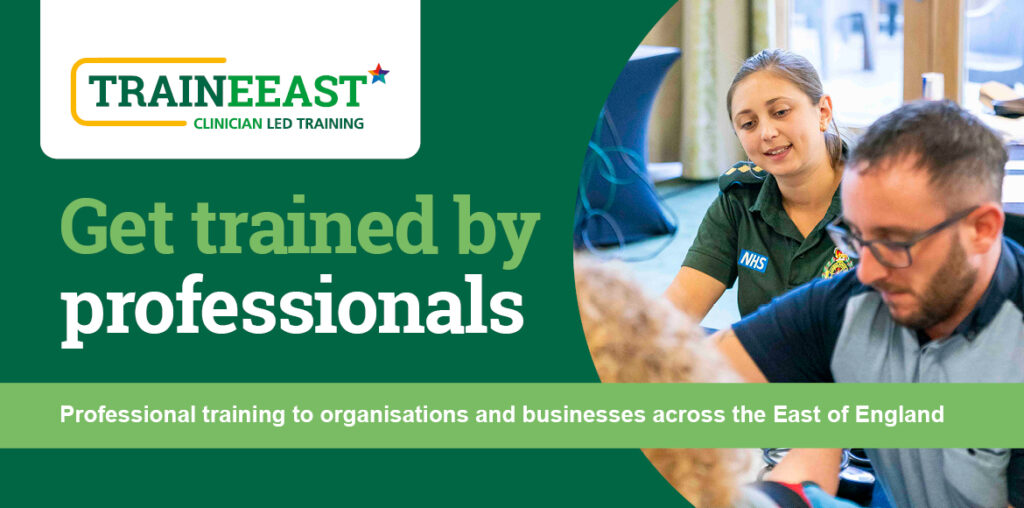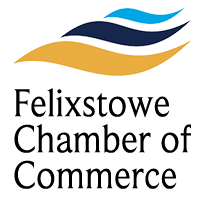Emergency First Aid at Work (EFAW) training is a crucial component of workplace safety in the UK. It equips employees with the necessary skills and knowledge to respond effectively to medical emergencies that might occur in the workplace.
Course length: 1 day (6 hours)
Max. number of delegates: 12
Training Provider: TrainEEast, NHS East of England Ambulance Service
Awarding body: Future Qualifications (RQF)
Members £120 per person (25% Discount)
Non-members £160 per person
For enquires and to make a booking, please contact our business officer.

Here are some compelling reasons why UK businesses should prioritize providing EFAW training to their employees:
Legal Requirements
Under the Health and Safety (First Aid) Regulations 1981, employers in the UK are legally obligated to provide adequate and appropriate first-aid facilities, equipment, and personnel to ensure the health and safety of their employees. EFAW training helps businesses meet these legal requirements by ensuring that there are trained individuals capable of providing immediate assistance in case of injuries or medical incidents.
Reduced Response Time
In the event of a medical emergency, the first few minutes are critical. Having trained employees on-site who can provide immediate and appropriate first aid can significantly reduce response times, potentially preventing a situation from worsening and allowing for better outcomes.
Injury Prevention
EFAW training not only focuses on responding to emergencies but also educates employees about common workplace hazards and how to prevent injuries. This knowledge can help create a safer work environment and reduce the likelihood of accidents.
Employee Well-being
Knowing that their workplace cares about their safety and well-being can boost employee morale and job satisfaction. When employees feel valued and protected, they are more likely to be engaged and motivated.
Customer and Public Perception
Depending on the nature of the business, customers and the public might visit the premises. Having trained staff on hand to respond to medical emergencies not only protects employees but also visitors, customers, and contractors, which can positively influence your business’s reputation.
Minimized Liability
In the unfortunate event of an accident, having properly trained employees who can provide immediate first aid can demonstrate due diligence on the part of the business. This can potentially mitigate legal liabilities and financial consequences.
Cost Savings
Immediate and appropriate first aid can prevent minor injuries from escalating into more serious health issues that require costly medical treatments or even hospitalization. By addressing injuries promptly, businesses can potentially save on healthcare costs and insurance premiums.
Emergency Preparedness
EFAW training instills a sense of emergency preparedness among employees. They will be better equipped to remain calm and composed during high-stress situations, which can lead to more effective and organized responses.
Comprehensive Training
EFAW training covers a range of essential skills, including cardiopulmonary resuscitation (CPR), wound management, and dealing with unconsciousness. This comprehensive training ensures that employees are well-prepared to handle a variety of emergency scenarios.
Legal and Ethical Responsibility
Businesses have an ethical responsibility to protect the health and safety of their employees. Providing EFAW training reflects a commitment to this responsibility and showcases the company’s dedication to its workforce.
Summary
Emergency First Aid at Work training is a valuable investment for UK businesses, as it enhances workplace safety, reduces response times, demonstrates legal compliance, boosts employee morale, and can potentially save lives. It’s a proactive approach that contributes to a safer and more responsible working environment.

This course is ideal for lower risk workplaces, or anyone who requires a comprehensive one-day first aid course. This qualification is valid for 3 years and we recommend a half day annual refresher.
Topics covered
- Assessing a scene
- Casualty assessment
- Using first aid equipment
- Assisting the ambulance service
- Cardio Pulmonary Resuscitation
- Unconsciousness
- Seizures
- Shock
- Choking
- Asthma
- Heart Attacks
- Wounds & bleeding
- Fractures, strains & sprains
- Spinal injuries
- Burns & scalds
- Eye injuries
- Poisoning
- Anaphylaxis
- Diabetes
- Head injuries
- Stroke
- Infection control
- Incident reporting & record keeping
